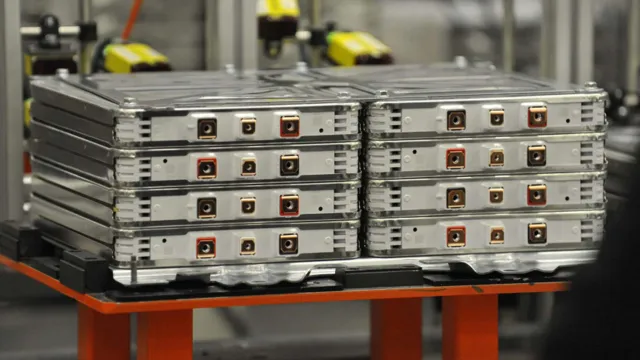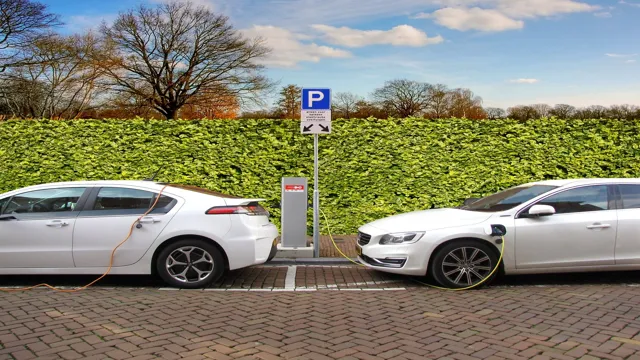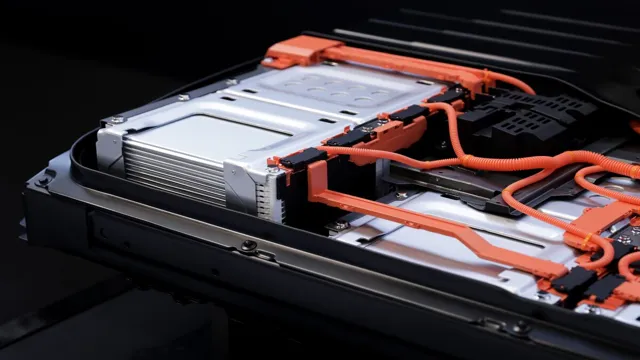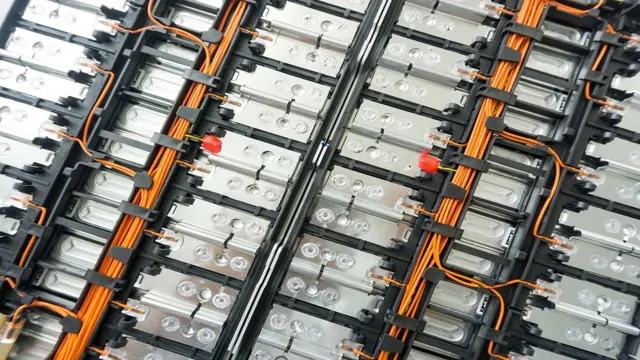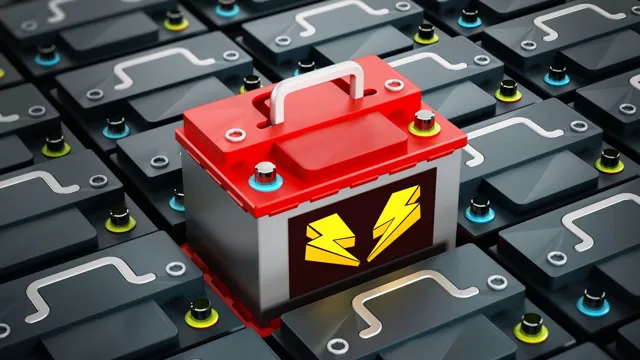Powering Up Your Knowledge: Uncovering the Truth About Recycling Electric Car Batteries
Have you ever wondered what happens to the batteries in your electric car once they wear out? While electric vehicles have a reputation for being eco-friendly, the truth is that their batteries can have a significant impact on the environment if they are not disposed of properly. That’s where recycling comes in. Recycling electric car batteries is not only crucial, but it is also becoming more necessary as the popularity of EVs continues to grow.
The lithium-ion batteries used in electric cars contain valuable materials such as cobalt, nickel, and lithium. By recycling these batteries, these materials can be recovered and used to make new batteries, reducing the need for new mining and reducing the carbon footprint of EVs. In addition, recycling can prevent the toxic chemicals inside these batteries from leaching into the environment.
Recycling electric car batteries is not only environmentally responsible, but it also has economic benefits. The growing demand for EVs is resulting in a higher demand for battery recycling, creating new jobs and boosting the economy. So, the next time you’re driving your EV, think about the batteries that power it and the impact they have on the environment.
Recycling your old batteries is not only the right thing to do, but a crucial step in reducing the environmental impact of electric vehicles.
What Are Electric Car Batteries Made Of?
Electric car batteries are typically made of lithium-ion, which means that they are highly recyclable. In fact, many electric vehicle manufacturers have made it a goal to create a closed-loop system, in which the materials used in the batteries are recycled and reused again and again. This not only reduces the environmental impact of manufacturing electric vehicles but also makes them more cost-effective and sustainable in the long run.
Of course, this is not to say that the recycling process for lithium-ion batteries is perfect. There are still challenges when it comes to extracting and separating the materials used in the batteries, and there is a need for more infrastructure and investment in order to make the recycling process more efficient and cost-effective. Nonetheless, the fact that electric car batteries are highly recyclable is yet another reason why they are a great option for those who are looking to reduce their carbon footprint and make a positive impact on the environment.
A Guide To Electric Vehicle Battery Technologies
Electric vehicle battery technologies have come a long way from the early lead-acid batteries used in golf carts. Today, most electric cars use lithium-ion batteries, which are smaller, lighter, and more powerful than their predecessors. These batteries are made up of a mix of metals, such as cobalt, nickel, and lithium, which are mined from various locations around the world.
Some newer electric cars, like the Tesla Model S and X, now use cobalt-free batteries, which are seen as more sustainable and ethical. However, there are also emerging battery technologies, such as solid-state batteries, which promise even greater energy density and safety. These batteries replace the liquid electrolyte used in lithium-ion batteries with a solid electrolyte, which can offer faster charging times, longer range, and improved safety.
Other research is also underway to develop more sustainable battery materials, such as sodium-ion batteries, which have the advantage of using more abundant and cheaper materials. Despite these improvements, electric car batteries still have some limitations. They are expensive to produce, which contributes to the high cost of electric vehicles, and they may not last as long as traditional car engines.
However, manufacturers are continually improving their battery technology and working on ways to recycle batteries at the end of their life cycle. As electric cars become more popular, we can expect battery technology to continue to evolve and become more efficient, affordable, and sustainable.
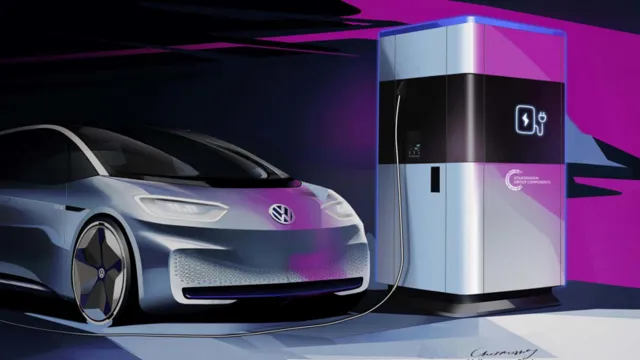
The Importance Of Recycling EV Batteries
Yes, the batteries for electric cars are recyclable and their recycling is crucial for a more sustainable future. These batteries may no longer be suitable for use in electric vehicles due to wear and tear or reduced performance, but they still contain many valuable materials such as lithium, cobalt, nickel, and copper. Recycling these materials not only reduces the demand for mining and processing new ones but also conserves energy and reduces greenhouse gas emissions.
Additionally, recycling EV batteries can offer a new source of revenue for automakers and battery manufacturers. By giving a second life to these batteries, we are taking a step towards a more circular economy where waste is minimized, and resources are used efficiently. Therefore, it is necessary to establish robust recycling systems that can recover the maximum amount of materials from used EV batteries to promote a more sustainable society.
Environmental Impact Of Discarding Batteries
The environmental impact of discarding batteries, especially EV batteries, is a growing concern. These batteries contain toxic chemicals such as lead, lithium, and nickel, which can contaminate the soil and water if not disposed of properly. To mitigate this issue, recycling EV batteries is crucial.
Not only does recycling help protect the environment, but it also recovers valuable materials like cobalt and lithium, which can be reused in the production of new batteries. Recycling also reduces the need for new mining, further lessening the environmental impact. It is important to note that proper disposal and recycling of batteries require specialized technology and knowledge, which is why it is crucial for manufacturers and policymakers to invest in responsible recycling practices.
By doing so, we can significantly reduce the harmful effects of battery waste and make a positive impact on the environment.
The Value Of Reusing Battery Materials & Metals
Recycling EV batteries is crucial for sustainability and reducing our carbon footprint. These batteries contain valuable materials such as lithium, cobalt, and nickel that can be reused. Not only does recycling these materials reduce energy consumption and greenhouse gas emissions, but it also decreases our dependence on mining new materials.
Moreover, recycling helps us conserve the planet’s natural resources and ensures these materials are available for future generations. It’s like using your old clothes to create a new outfit rather than throwing them away and buying new ones. Additionally, reusing battery materials and metals also contributes to the circular economy, where waste is minimized and resources are used efficiently.
By embracing the recycling of EV batteries, we can help preserve the environment and create a sustainable future for ourselves and our planet.
Long-Term Effects On Human Health & Safety
As the popularity of electric vehicles (EVs) continues to rise, the issue of recycling their batteries becomes increasingly important for human health and safety. The long-term effects of improperly disposed of EV batteries can be detrimental to the environment, with toxic chemicals leaking into the soil and waterways. Recycling these batteries not only prevents these harmful effects but also allows for the recovery of valuable materials, such as cobalt and lithium, which can be used in new batteries.
It’s important to note that recycling EV batteries is not a simple process and requires specialized technology and knowledge. But, just as we sort our household waste, we must take responsibility for properly disposing of EV batteries. Imagine if we all just threw our garbage into landfills instead of sorting it—this would lead to a significant environmental disaster.
Similarly, neglecting to recycle EV batteries would also have disastrous consequences. Recycling these batteries can help preserve the planet and ensure they are safely managed to protect human health both now and in the future.
What Happens During An EV Battery Recycling Process?
Yes, the batteries used in electric vehicles are recyclable. Recycling is an essential process that helps preserve our environment and minimize waste. The EV battery recycling process starts by collecting used batteries from different sources, including electric car owners, auto manufacturers, and battery suppliers.
The batteries undergo a series of tests to determine their state and condition before recycling. The recycling process involves dismantling the batteries, and the components are sorted depending on their composition. The batteries’ valuable metals, including nickel, cobalt, and lithium, are extracted and repurposed in the production of new EV batteries and other electronic devices.
Recycling helps reduce the need to extract additional metals from the earth and minimizes the impact of toxic waste on the environment. By recycling, we can support green practices and create a sustainable future for our planet.
Breaking Down & Sorting Materials
During an EV battery recycling process, the first step is breaking down and sorting materials. EV batteries contain several materials, including lithium, cobalt, nickel, manganese, aluminum, and copper. These materials need to be separated and sorted to make it easier for the recycling process.
The batteries are first crushed and shredded to smaller fragments. The next step is separating and sorting the materials using various methods such as hydraulic separation, magnetic separation, and eddy current separation. Each material is then sent to its respective recycling facility to be processed further.
This process helps to recover valuable materials from the batteries and reduce environmental pollution caused by improper disposal. In conclusion, recycling EV batteries is essential to ensure sustainability and reduce environmental impact.
Removing Hazardous Chemicals
When it comes to EV battery recycling, the process involves removing hazardous chemicals from the batteries before any recycling can take place. The first step in the process is to remove the battery from the vehicle and transport it to a recycling facility. Once there, the battery is dismantled, and the hazardous chemicals, such as lithium and cobalt, are extracted using a variety of techniques.
These chemicals are then processed and purified, ready for reuse in new battery components or other products. By removing these harmful materials from the batteries, the recycling process helps to reduce the environmental impact of EVs and preserve natural resources. So, the next time you’re considering purchasing an electric vehicle, rest assured that the batteries will be recycled properly, and the hazardous chemicals removed, minimizing the environmental impact.
How Can You Recycle Your Old EV Batteries?
Yes, the batteries of electric cars are indeed recyclable. As with any electronic device, the lithium-ion batteries that power electric vehicles (EVs) do not last forever. After years of use, EV batteries will eventually degrade and lose their ability to hold a charge, making it necessary to replace or dispose of them.
However, it’s important to note that electric car batteries are much larger than those used in most consumer electronics. As such, they require a different and more complex recycling process to ensure that hazardous chemicals, such as lithium, cobalt, and nickel, are not released into the environment. Fortunately, there are numerous recycling companies and initiatives dedicated to giving old EV batteries new life.
These companies and initiatives can help to extract valuable and reusable materials from the batteries, such as copper, aluminum, and lithium, which can be used to make new batteries or other products. Recycling old EV batteries not only reduces waste but it also helps to conserve precious natural resources.
Battery Recyclers And Programs In Your Area
If you own or are thinking of purchasing an electric vehicle, it’s important to know how to properly dispose of its battery once it reaches the end of its life. Fortunately, there are several battery recycling programs and facilities available to help you recycle your old EV batteries. Many automakers have started their own recycling programs to ensure the safe disposal of their batteries, such as Tesla’s Battery Recycling Program.
Additionally, there are select commercial recycling centers that specialize in handling lithium-ion batteries, such as Umicore and Recupyl. These facilities use technology to extract valuable metals from the batteries, such as nickel, cobalt, and lithium, which are then repurposed for new batteries. Remember, improper disposal of EV batteries can harm the environment as they contain toxic materials, so do your part by researching and utilizing your local battery recycling options.
Conclusion
In conclusion, the question of whether batteries for electric cars are recyclable can be answered with a resounding yes. Not only are they recyclable, but the demand for recycled batteries is increasing, making them a valuable resource. So, next time you see an electric car on the road, don’t fret about its battery causing harm to the environment.
Rest assured knowing that when it’s time to replace that battery, it will likely be reused or recycled in an eco-friendly way. Charge on!”
FAQs
What types of batteries are used in electric cars?
Most electric cars use lithium-ion batteries, although some older models may use nickel-metal hydride batteries.
How long do electric car batteries typically last?
Electric car batteries can last anywhere from 8-10 years, or up to 150,000 miles, before they need to be replaced.
Are electric car batteries recyclable?
Yes, electric car batteries are recyclable. The materials inside the batteries, such as lithium and cobalt, can be repurposed and used in new batteries or other products.
Can you sell used electric car batteries?
Yes, some companies are willing to buy used electric car batteries for recycling purposes. You may also be able to sell them to individuals or businesses looking to repurpose the batteries for alternative energy storage.
